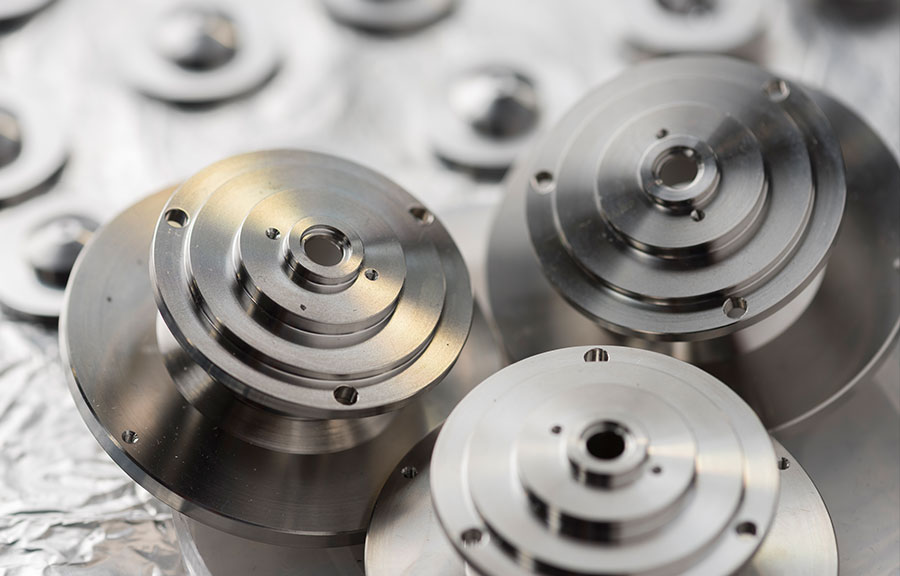Ion Beams
INNOVATION AND COLLABORATION
Specialist Focused Ion Beam Suppliers
WHAT WE DO
Benefit from our decades of experience as focused Ion Beam suppliers.
For 30 years, Ionoptika has been delivering high-performance Ion Beam technologies. Throughout this period, we’ve been considered pioneers in the field. From developing the first carbon fullerene (C60) ion source, an excellent analytical and sputter tool, to creating the first gold cluster ion source for secondary ion mass spectrometry (SIMS), our innovation has set us apart.
Today, we are also recognised as global leaders in the development and provision of Gas Cluster Ion Beams (GCIB) and water cluster Ion Beams. These tools expand the use of surface analytical techniques into organic and biological research, finding use in forensic science, cancer diagnosis, lipidomics, and beyond.

As expert focused Ion Beam suppliers, we support a wide range of sectors.
STATE-OF-THE-ART SOLUTIONS
Find the right Ion Beam system for you.
C60 Ion Beams
Our C60 Ion Beams offer fast, uniform sputtering with minimal damage. They are ideal for XPS, AES, and SIMS instruments. The C60-20 and C60-40 beams provide high-speed and low-damage analysis across various materials, making them powerful tools for broad applications.
Gas Cluster Ion Beams
Gas Cluster Ion Beams from Ionoptika offer versatile, low-damage sputtering and high-resolution surface analysis that’s ideal for organic and soft materials. With advanced features, they’re optimal for use in SIMS, XPS, and SEM applications.
Liquid metal Ion Beams
These Ion Beams offer high-performance, high-energy etching for SIMS techniques with the very best spatial resolution, down to 50nm spot size.
Plasma Ion Beams
Plasma Ion Beams offer high-brightness and rapid etching with various gases, which is ideal for hard materials. Our systems include Duoplasmatrons (IOG 30D, FLIG 5) and Electron Cyclotron Resonance (IOG 30ECR) sources.
Get in touch with us today to find out about gas cluster, liquid metal Ion Beams, and more.
MEETING ANY REQUIREMENT
Which Ion Beam system suits your needs?
Sputter Beams
Whilst all Ion Beams will sputter a surface, some of our systems have been created with efficient and fast sputtering at the heart of the design.
The Ion Beams we offer you can be split into two groups. These are based on the application or purpose of the solution.
Sputter beams have three key characteristics:
High current
Large spot size
Wide field of view
This combination of features means that they deliver a large dose of ions over a wide area as quickly as possible to optimise etch rates.
What are sputter beams used for?
Usually, sputter beams are used to remove material prior to analysis that’s conducted using a separate technique.
This can be for cleaning purposes or used to depth profile through the sample. The best sputter beam for your application depends on the material being sputtered.
Gas Cluster Ion Beams are ideal for removing organic material, whilst a low-energy oxygen beam is best suited to depth profiling through hard, inorganic material.
Progress and collaboration are at the heart of what we do. Find out more about the people behind the innovation here.
Analytical Beams
Analytical beams are usually used for secondary ion mass spectrometry (SIMS). This involves the primary Ion Beam causing an ejection of secondary ions from a sample surface. These ions are then analysed by a mass spectrometer.
SIMS is a potent technique that can generate complex chemical maps of a surface.
Analytical beams have three key characteristics:
Variable current control
Wide energy range
Small spot size.
This allows fine control over the behaviour of the beam, enabling greater optimisation of the experiment.
What are Analytical Beams used for?
Traditionally, SIMS has been used to study hard materials like semiconductors and metals. However, the introduction of Gas Cluster Ion Beams into our SIMS portfolio has greatly expanded the technique’s reach into biological and medical research.
We manufacture the J Series III SIMS instrument, which uniquely allows Gas Cluster Ion Beams to be used as the primary Analysis Beam. Nevertheless, for most SIMS instruments, the primary analytical beam will require fast pulsing, meaning that gas clusters cannot be used.
Ion Beam |
SPECIES |
ENERGY RANGE |
Min spot size |
Beam current |
|---|---|---|---|---|
|
|
|
|
|


